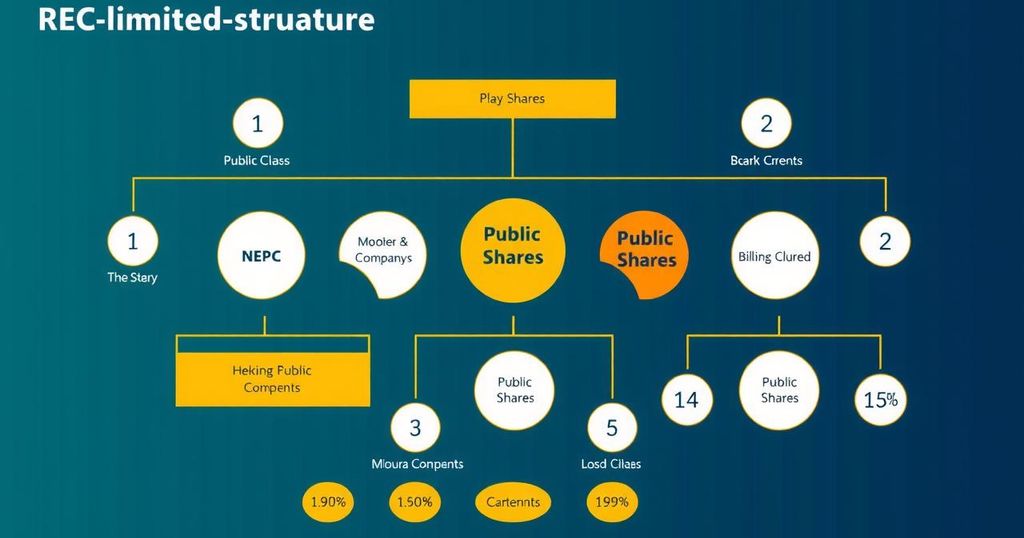Public companies dominate ownership in REC Limited (NSE: RECLTD) with 53%, while institutions hold 26%. Power Finance Corporation is the largest stakeholder, indicating substantial influence over corporate matters. Insider ownership is minimal, and general public shareholding is also significant at 19%. Understanding these trends is essential for investors as they assess risks and opportunities within the company.
REC Limited (NSE: RECLTD) has notable ownership distribution, where public companies control 53% of shares, while institutions hold 26%. This significant public ownership allows for greater influence over the company’s management and governance, primarily through Power Finance Corporation Limited, which is the largest shareholder. Institutional investors tend to prefer companies included in major indices, thus the presence of institutions in REC indicates a level of validation, although it also poses risks linked to crowded trades. The largest institutional investor is Power Finance Corporation, followed by WindAcre Partnership LLC and BlackRock, Inc. In terms of insider ownership, data shows insiders own less than 1% of REC’s stock, holding approximately ₹4.6 million. While low insider ownership can be concerning regarding accountability, it is common in larger corporations. It is crucial to observe any buying or selling actions by insiders. The general public, consisting mainly of individual investors, holds 19% of the shares, providing a degree of influence though not sufficient to alter corporate policy independently. The substantial ownership by public companies may indicate strategic interests or related business operations, warranting further investigation. In conclusion, while analyzing shareholder distribution in REC, potential investors should remain mindful of investment risks. Identifying any warning signs in the business model and understanding the growth trajectory are essential as part of a comprehensive investment strategy. Investors may also benefit from reviewing analyst forecasts to shape informed decisions.
REC Limited is a prominent player in financing services for power generation, transmission, and distribution projects in India. Understanding the ownership structure of a company can provide vital insights into its governance and potential market behavior. A noteworthy observation is the compelling influence of public companies over REC as they command a majority stake.
In essence, the ownership dynamics at REC Limited reveal significant influence from public companies, particularly Power Finance Corporation. Institutional ownership, while considerable, poses risks related to market trends. The limited insider ownership could affect governance accountability. Overall, investors must weigh these factors and ongoing market analyses to make informed decisions.
Original Source: simplywall.st

Leave a Reply